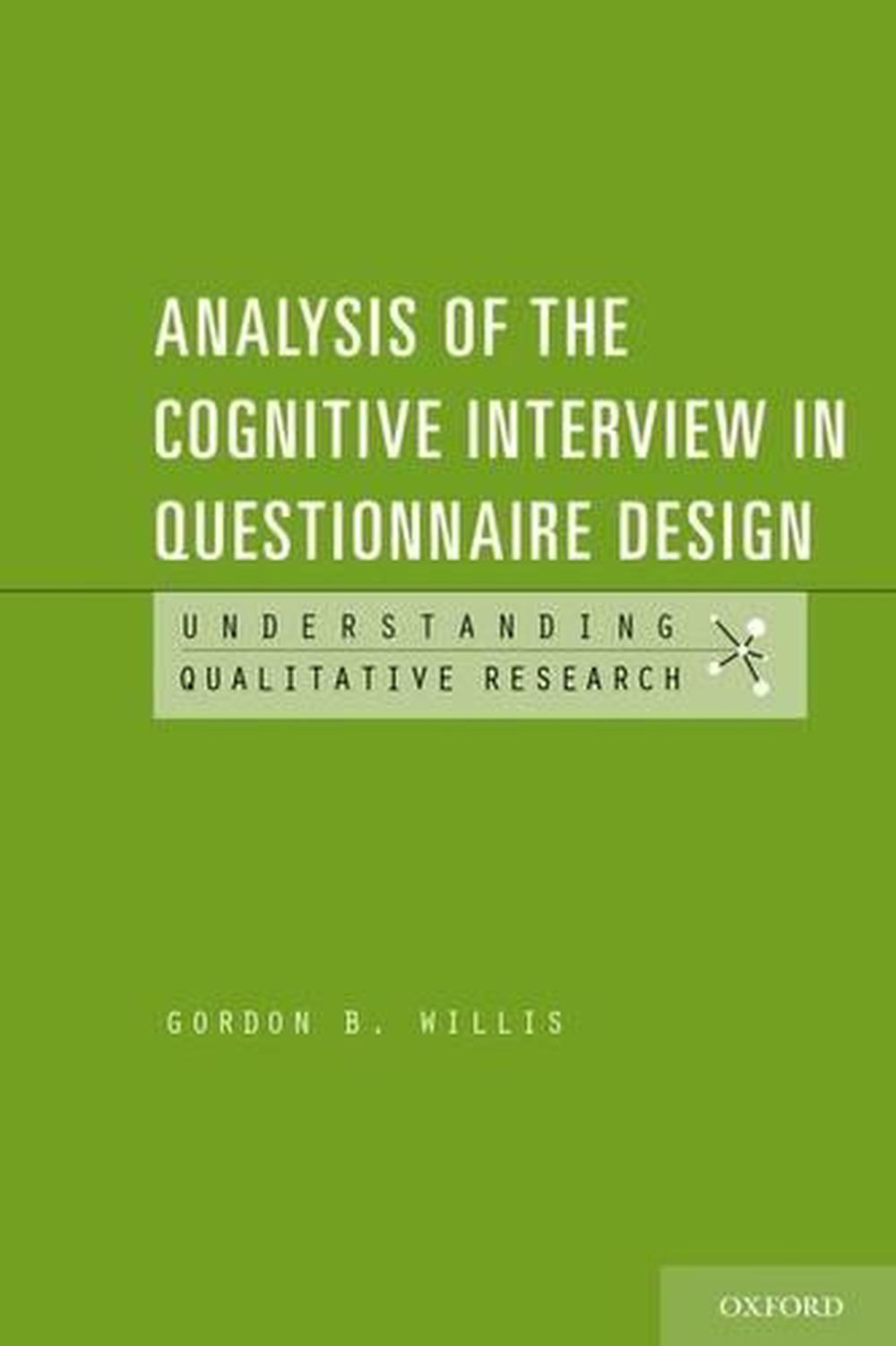
Analysis of the Cognitive Interview in Questionnaire Design
- Paperback
274 pages
- Release Date
14 May 2015
Summary
Cognitive interviewing, based on the self-report methods of Ericsson and Simon, is a key form of qualitative research that has developed over the past thirty years. The primary objective of cognitive interviewing, also known as cognitive testing, is to understand the cognitive mechanisms underlying the survey-response process. An equally important aim is contributing to the development of best practices for writing survey questions that are well understood and thatproduce low levels of respon…
Book Details
| ISBN-13: | 9780199957750 |
|---|---|
| ISBN-10: | 0199957754 |
| Series: | Understanding Qualitative Research |
| Author: | Gordon Willis |
| Publisher: | Oxford University Press Inc |
| Imprint: | Oxford University Press Inc |
| Format: | Paperback |
| Number of Pages: | 274 |
| Release Date: | 14 May 2015 |
| Weight: | 318g |
| Dimensions: | 206mm x 135mm x 18mm |
You Can Find This Book In
About The Author
Gordon Willis
Gordon B. Willis is a cognitive psychologist in the Applied Research Program of the National Cancer Institute’s Division of Cancer Control and Population Sciences.
Returns
This item is eligible for free returns within 30 days of delivery. See our returns policy for further details.




